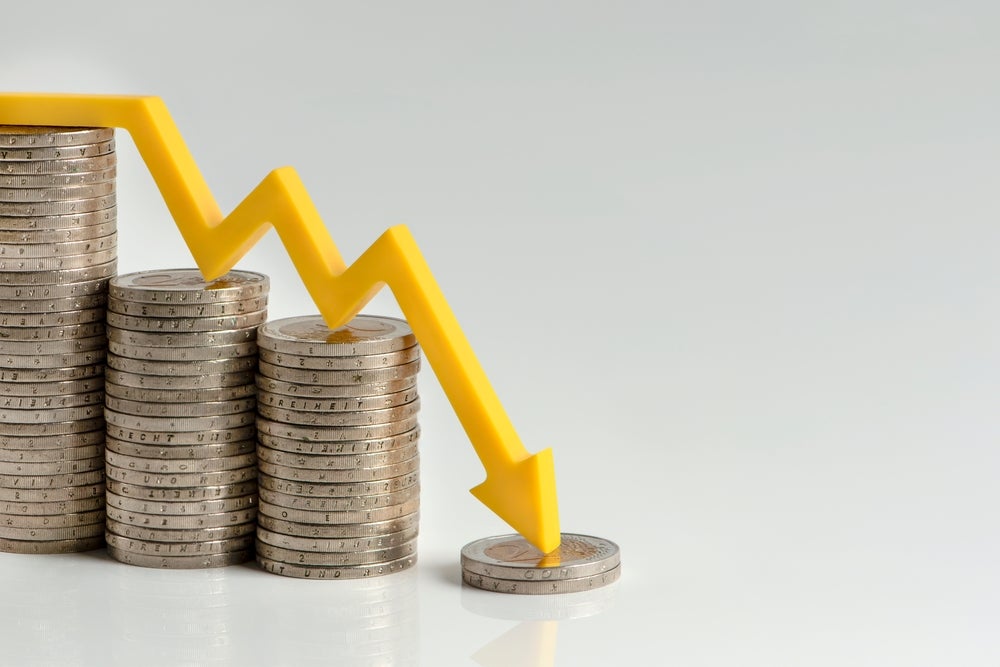
The ONS has revelated that UK GDP fell by 0.5% in December 2022, despite many predicting contraction or even growth. Has the UK just escaped a recession in 2023? Or is that yet to come? Patrick Brusnahan asks the experts
Jeremy Batstone-Carr, European strategist, Raymond James Investment Services
Today’s figures confirm that the UK has escaped recession by the skin of its teeth in 2022. With December’s contraction of 0.5%, skirting recession by the slimmest of margins, the UK has achieved a minor economic victory.
November’s 0.1% growth came as a significant surprise, with England’s footballers providing sufficient cheer to temporarily offset the negative effects of elevated inflation and rising rates. But the footballers have now packed up and come back home, bringing an end to this economic reprieve.
We are still in for the downturn which so far has been barely kept at bay. It will be shorter and shallower than previously thought, as per the Bank of England’s forecasts. The lagged impact of earlier base rate increases combined with additional policy tightening will ensure it happens. However, whether we are officially in recession will not make much difference to most people – it will simply feel like a continuation of the present sluggishness and cost-of-living woes.
Susannah Streeter, head of money and markets, Hargreaves Lansdown
Although a distinct chill descended in December, as bad weather, strikes and more painful price hikes blew in, the downturn wasn’t deep enough to push Britain into recession. There is still a chance the economy will still suffer two back-to-back quarters of negative growth this year, but the murky stretch of water ahead is set to be shallower and less lengthy than predicted in the Autumn when the country was also wracked with financial instability.
So, instead of doing the timewarp and bracing for a recessionary return to the seventies, sparked by energy shocks, soaring inflation and industrial strife, we could be heading for an early noughties-style period of stagnation.
How well do you really know your competitors?
Access the most comprehensive Company Profiles on the market, powered by GlobalData. Save hours of research. Gain competitive edge.

Thank you!
Your download email will arrive shortly
Not ready to buy yet? Download a free sample
We are confident about the unique quality of our Company Profiles. However, we want you to make the most beneficial decision for your business, so we offer a free sample that you can download by submitting the below form
By GlobalDataThe dot.com bubble burst in 2000, sparking a US slide into recession in March 2001, with France and Germany following suit. However, the UK narrowly avoided the same fate, with British shoppers providing a spending boost to lift growth. Back then, in March 2001, US R&B singer Joe was top of the billboard charts with the track Stutter and it looks like the UK might just stutter and stumble through the cost-of-living crisis, as consumers splash out on socialising and sunshine-filled holidays, to compensate for the grey days of winter. The FTSE 100 has provided cheer, racing up to surpass recent record highs as the energy crisis has eased and brighter spots emerge for the global economy.
There is, of course, still a chance that with the UK housing market set to turn from a quiver to a shiver as painful rate rises start to hit, consumer confidence, which has been inching up, may start to seep away again. Output across the economy is still 0.5% lower than before the pandemic hit. With interest rates set to rise further, shoppers may baulk at swallowing yet more painful price rises, which could still hit consumer discretionary stocks listed on the FTSE 100, with some companies warning of uncertain months ahead. However, inflation is inching down here in the UK and in other nations around the world, which have been sideswiped by punishing price spirals. There is also more confidence washing around, helped by the re-opening of China’s vast economy.
This positive sentiment is helping the Footsie keep a spring in its step for now, as it hovers near fresh record highs, and could keep buoying the confidence of British consumers and companies in the months ahead.
Jonathan Moyes, head of investment research, Wealth Club
A modest decline in GDP for December was a little weaker than expected. Nonetheless, it was enough to avoid what was widely predicted to be a recession in 2022.
This release paints a very subdued picture for the state of the economy in Q4, although exceptionally cold weather and the postponement of premier league matches seem to have distorted the figures somewhat.
The release will do little to sway the opinions of economic forecasters. It remains a brave call to signal a turning point in sentiment for the UK. However, there does appear to be a more optimistic consensus forming. The Bank of England upgraded its outlook for the economy last week, energy prices are falling sharply, China is reopening, and interest rate expectations have eased significantly.







